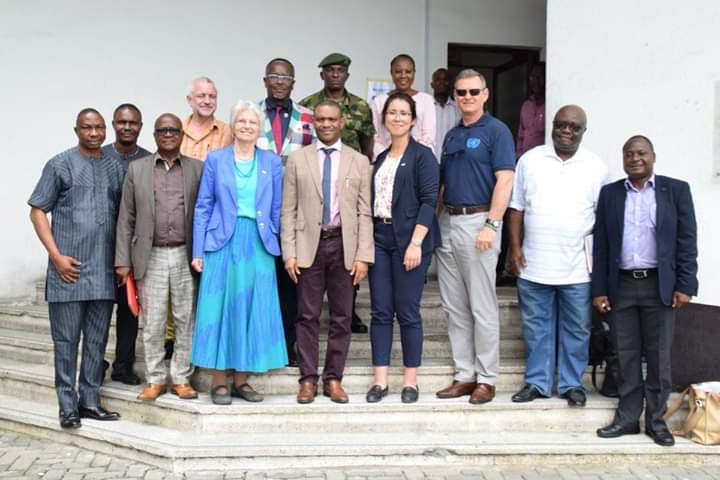Netherlands’ ambassador to Nigeria, Ms Marion Kappeyne, has pledged
to support the Nigerian Government and the Hydrocarbon Pollution
Remediation Project, HYPREP, in the clean-up of oil-impacted sites in
Ogoniland.
The ambassador said this while inspecting one of the less complex
sites which is undergoing remediation, in Ebubu, Eleme, during which
she warned against the repollution of the Ogoni environment.
Kappeyne explained that she had to come to Ogoniland to see things for
herself rather than just sitting and reading stories on the pages of
newspapers in Abuja.
She expressed confidence that with the collaboration and supervision
of the clean-up by the United Nations Environment Programme, UNEP, the
clean-up will be of international best standard.
I came to see things for myself rather than sitting in Abuja and just
reading them on the newspapers. This part of the country (Niger Delta)
is very important, we are following things up to ensure the clean-up
is a success.
Be assured that you are not forgotten, we came to see how we can
support the clean-up.
However, It’s no one’s interest that the land which is being
remediated gets recontaminated again. I understand the impatience that
people want to see results, that their lands are cleaned. I can see
that work is ongoing and I do hope that it will produce results soon.
Also speaking, the Project Coordinator of HYPREP, Dr Marvin Dekil,
explained that clean-up contractors were using a contaminated soil
treatment technology called biocell to remediate the polluted site.
Dekil explained that biocell is biological treatment facility that
allows contaminated soil to be treated through natural microorganisms,
while describing the process as a top performance.
We excavate contaminated soil and put it into the biocell, then
subject it to bio-remediation treatment, so as to allowed the natural
microorganisms to degrade the contaminated soil to a level that is now
good enough for us to return the soil to back to where we took it
from.
This is a contaminated soil treatment technology called biocell,
without the integrated soil management centre, we have this technology
for the less complex sites and that is what we are doing.
This is the first time a Nigerian government is undertaking a clean-up
process with practical steps to remediate the Niger Delta
environment, and the process as top performance.
Similarly, UNEP representative in Nigeria, Mr. Mike Cowing, expressed
satisfaction with biological remediation process of the less complex
site.
Cowing, explained that the Federal Government re-engaged UNEP to
assist HYPREP in the implementation of the recommendations, it had
made in the report in 2011,
He explained that as part of the process, UNEP took members of the
clean-up governing councl, including the Minister of Environment,
Minister Niger Delta Affairs and the Managing Director of SPDC, to the
United Kingdom to have a first hand knowledge about project of this
magnitude.
A good preparation for the biological remediation of the site, this is
a less complex site so the remediation by nature is going to be less
complex. When we move to the heavily contaminated sites, then we can
be looking at a more sophisticated remediation approach. For site of
this nature, what I am seeing now is appropriate and in line with what
I had expected.
The Nigerian government has re-engaged UNEP to help HYPREP implement
this cleanup project, and by help means that we are strengthening the
capacity of HYPREP.
We have initiated a number of technical training courses, we have
also taken members of the clean-up governing council to the United
Kingdom lastweek and we exposed them to large remediation projects in
UK, so they would have an understanding of how projects of this
nature are done in the UK, the technology, planing, contractual
relationship
